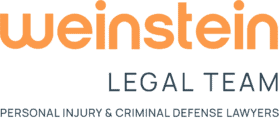Losing your driving privileges can devastate your ability to work, care for your family, and maintain your daily responsibilities. A suspended license doesn't just affect your commute; it can jeopardize your employment, limit your access to healthcare, and strain your personal relationships in ways that extend far beyond the original violation.
However, many drivers don't realize that legal loopholes and lesser-known options exist to potentially preserve or restore their driving privileges, even during suspension periods. These alternatives can provide the lifeline you need to maintain your livelihood and meet your obligations while addressing the underlying legal issues.

Understanding License Suspension Types and Their Impact
Understanding the different types of license suspensions is the first step in identifying which loopholes and alternatives may apply to your specific situation. Each suspension type carries different rules, waiting periods, and available remedies.
Florida imposes several types of license suspensions, each with distinct characteristics and consequences. DUI-related suspensions often carry the most severe restrictions, with first-time breath test refusals requiring a mandatory 90-day suspension period before hardship license eligibility. Drug-related offenses under Chapter 893 result in a one-year suspension, though hardship options become available after six months with proper program completion.
Point-based suspensions occur when drivers accumulate 18 points within 18 months, triggering a three-month suspension. Unlike some other suspension types, point-based suspensions allow for hardship license applications immediately upon completion of Advanced Driver Improvement school and payment of reinstatement fees.
Administrative suspensions can take effect quickly and often catch drivers off guard, making immediate legal action necessary to preserve driving privileges. Understanding these different suspension types helps determine which options may be available for maintaining limited driving privileges during the suspension period.
The Hardship License: Your Primary Lifeline
Hardship licenses represent the most accessible and commonly used option for maintaining limited driving privileges during suspension periods. These restricted licenses allow drivers to continue essential activities during their suspension period, providing a bridge between full suspension and license reinstatement.
Eligibility Requirements for Hardship Licenses
Hardship license eligibility varies significantly based on the type of underlying violation and the driver's history. For first-time breath test refusals, drivers must complete a mandatory 90-day suspension period before becoming eligible, with no hardship options available for those with two or more refusals. This strict timeline makes early legal intervention particularly important for preserving any available options.
Drug-related offense suspensions require a six-month waiting period before hardship eligibility, during which drivers must provide proof of DUI program completion and pay all required reinstatement fees. The process becomes more complex for drivers with multiple offenses, as enhanced penalties and extended waiting periods apply.
DUI manslaughter convictions with no prior DUI offenses result in permanent revocation, though hardship reinstatement may be possible after five years if strict conditions are met, including no drug-related arrests, no unlicensed driving, and sustained sobriety during the waiting period.
Certain factors can disqualify applicants from hardship license eligibility entirely. Previous violations of hardship license terms, outstanding legal obligations, or failure to complete required programs can eliminate this option. Understanding these requirements early allows drivers to address potential disqualifying factors before applying.
Application Process and Documentation
The hardship license application process requires careful attention to detail and comprehensive documentation. Applicants must submit multiple identification documents, including one primary ID such as a birth certificate or passport, one proof of Social Security number like a W-2 or pay stub, and two residential proofs such as lease agreements or utility bills, alongside the hardship application.
The application must be submitted to the appropriate Department of Highway Safety and Motor Vehicles office along with all required fees and supporting documentation. Processing times vary, but incomplete applications or missing documentation can cause significant delays.
Applicants should expect to pay reinstatement fees, administrative costs, and potentially additional penalties depending on the underlying violation. Accuracy in completing all paperwork cannot be overstated, as minor errors or omissions can result in application denial, forcing drivers to restart the process and potentially miss critical deadlines.
Permitted Driving Activities Under Hardship Licenses
Hardship licenses allow driving for specific purposes only, with strict limitations on when and where driving is permitted. Approved activities typically include work-related driving, medical appointments, educational purposes, and necessary family responsibilities such as childcare or eldercare. The license may also permit driving to required legal proceedings, counseling sessions, or program attendance.
Time restrictions often apply, limiting driving to specific hours that correspond to work schedules or appointment times. Geographical limitations may restrict driving to certain areas or routes, requiring drivers to take the most direct path to approved destinations.
Some hardship licenses include restrictions on passenger transportation or vehicle type, particularly for commercial drivers. The restricted nature of these licenses requires drivers to plan their activities carefully and maintain detailed records of their driving purposes and destinations.
Violating hardship license restrictions carries severe consequences, including immediate revocation, criminal charges, and potential five-year extensions of suspension periods. Even minor violations, such as driving outside approved hours or for non-approved purposes, can trigger these serious consequences.
Work Driving Permits: Specialized Options for Employment
Work driving permits offer specialized alternatives for drivers whose employment depends on driving privileges. These permits focus specifically on maintaining employment-related driving capabilities, often with more flexible terms than general hardship licenses.
Business Purpose Only Licenses
Business purpose only licenses cater to drivers who need driving privileges primarily for employment purposes. These licenses typically allow broader driving privileges than standard hardship licenses, including driving to and from work, during work hours for job-related activities, and for business-related appointments or meetings.
The application process requires detailed employer documentation, including verification of employment, job description, and specific driving requirements. Employers may need to provide letters confirming the necessity of driving for job performance and the potential consequences of license suspension on employment status. Self-employed individuals must provide additional documentation of their business activities and driving needs.
For drivers with four or more DUI convictions facing permanent revocation, employment-purpose-only licenses may be available after a five-year waiting period requiring zero alcohol consumption, no unlicensed driving, and strict program compliance. These licenses provide the most restrictive form of driving privileges but may represent the only option for maintaining employment in severe cases.
Commercial Driver Considerations
Commercial drivers face unique challenges when dealing with license suspensions, as their livelihood depends directly on maintaining valid driving credentials. CDL holders may have options to downgrade to regular licenses while serving certain suspensions, allowing them to maintain some driving privileges for personal use while addressing the underlying issues.
Restricted commercial permits may be available in limited circumstances, allowing drivers to continue operating commercial vehicles within specific parameters. These permits typically require employer sponsorship, additional insurance coverage, and strict compliance with all terms and conditions.
Commercial drivers must also consider the impact of suspension on their employment prospects and professional standing. Some violations may permanently disqualify drivers from certain types of commercial driving, making it important to explore all available options early in the process.
Administrative Hearing Strategies: Challenging Suspensions Before They Take Effect
Administrative hearings provide a proactive approach to preventing license suspension rather than seeking permits after suspension begins. These proceedings offer the opportunity to challenge the underlying basis for suspension and potentially avoid the consequences entirely.
Formal Review Hearings
Florida's 10-day rule requires drivers to request a formal review hearing within 10 calendar days after a DUI arrest to prevent automatic suspension. Missing this deadline forfeits the right to challenge the suspension administratively, making immediate action necessary following any arrest.
The formal review hearing process allows drivers to present evidence and legal arguments challenging the validity of the suspension. If the Department of Highway Safety and Motor Vehicles fails to schedule a formal review hearing within 30 days of receiving a request, the suspension is automatically invalidated per Florida Statute § 322.2615(9).
Successful defense strategies in formal review hearings often focus on procedural defects, constitutional violations, or factual disputes regarding the underlying arrest or testing procedures. The burden of proof varies depending on the type of suspension, but skilled legal representation can identify weaknesses in the state's case and present compelling arguments for dismissal.
Informal Review Options
Informal review procedures provide an alternative to formal hearings in certain circumstances, offering a less adversarial approach to resolving suspension issues. These procedures may be appropriate for minor violations or cases where factual disputes are limited, allowing for quicker resolution without the complexity of formal proceedings.
Informal reviews typically involve administrative staff rather than hearing officers, with less formal evidence requirements and procedural rules. While success rates may vary, these proceedings can offer efficient resolution for appropriate cases, particularly when combined with proactive compliance efforts or corrective actions.
The decision between formal and informal review options depends on the specific circumstances of each case, the strength of available defenses, and the desired outcome. Professional legal guidance helps determine the most appropriate strategy and maximize the chances of a favorable resolution.
Lesser-Known Legal Loopholes and Exceptions
Specialized legal situations and technical defects can provide suspension relief in cases where traditional hardship options may not apply. These loopholes require careful legal analysis and skilled representation to identify and pursue successfully.
Procedural Defects and Technical Violations
Procedural errors by law enforcement or administrative agencies can invalidate suspensions entirely, providing complete relief rather than limited driving privileges. In 2015, 32.7% of administrative suspensions were invalidated due to arresting officers failing to appear at formal review hearings, demonstrating how procedural defects can overturn suspensions.
Common procedural defects include improper notice of suspension, missed deadlines by administrative agencies, jurisdictional issues, and constitutional violations during the arrest or testing process. These defects may not be immediately apparent but can provide powerful grounds for challenging suspension validity when properly identified and presented.
Technical violations in the administration of tests, maintenance of equipment, or chain of custody procedures can also invalidate the underlying basis for suspension. These issues require a detailed review of police reports, maintenance records, and administrative procedures to identify and pursue them effectively.
Medical and Disability Accommodations
Drivers with medical conditions or disabilities may qualify for special accommodations that affect suspension enforcement or provide alternative remedies. These provisions recognize that certain medical conditions may impact a driver's ability to comply with testing requirements or participate in standard remedial programs.
Medical review processes may allow for modified suspension terms, alternative compliance methods, or specialized hardship provisions that account for disability-related needs. Documentation from healthcare providers, disability services agencies, or medical experts may be required to support accommodation requests.
The Americans with Disabilities Act and similar state laws provide additional protections that may apply to license suspension proceedings, particularly when standard procedures create barriers for individuals with disabilities. These protections require administrative agencies to provide reasonable accommodations in their processes and procedures.
Out-of-State License Considerations
Drivers with out-of-state licenses may face different suspension enforcement procedures due to interstate compacts and reciprocity agreements. These differences can sometimes provide opportunities to maintain driving privileges in certain jurisdictions while addressing issues in others.
The Interstate Driver's License Compact affects how states share information and enforce suspensions across state lines, but gaps in coverage or timing delays may create temporary opportunities for maintaining driving privileges. However, these situations require careful handling to avoid compounding legal problems.
Reciprocity agreements between states may not cover all types of violations or suspensions, potentially creating situations where drivers can maintain privileges in their home state while serving a suspension in the state where the violation occurred. These complex interstate issues require skilled legal analysis to navigate safely and effectively.
Timing and Strategic Considerations
Successful utilization of suspension loopholes requires precise timing and strategic planning. Understanding critical deadlines and coordinating multiple legal proceedings can make the difference between maintaining driving privileges and facing extended suspension periods.
Critical Deadlines You Cannot Miss
The most important deadline in Florida DUI cases is the 10-day rule for requesting formal review hearings, which must be filed within 10 calendar days after arrest to prevent automatic suspension. Missing this deadline eliminates the opportunity to challenge the suspension administratively and forces reliance on hardship options or criminal defense strategies.
Hardship license applications have their own timing requirements, with some requiring completion of mandatory suspension periods before eligibility begins. Drug-related offenses require a six-month waiting period before hardship eligibility, while breath test refusals require a 90-day waiting period.
Appeal processes for denied hardship applications or adverse hearing decisions have strict deadlines that vary depending on the type of proceeding and the issuing agency. Extensions or waivers may be available in limited circumstances, but relying on these exceptions creates unnecessary risk and potential complications.
Coordinating Multiple Legal Proceedings
License suspension issues often coincide with criminal proceedings, creating the need for coordinated defense strategies that address both administrative and criminal consequences. Plea negotiations in criminal cases can affect driving privileges, making it important to consider all implications before accepting any resolution.
The timing of different proceedings can create conflicts or opportunities depending on how they are managed. Administrative hearings may provide discovery opportunities that benefit criminal defense, while criminal proceedings may develop evidence useful in administrative challenges.
Settlement negotiations in criminal cases should always consider the impact on driving privileges, as some plea agreements may offer better outcomes for license preservation than others. The long-term consequences of different resolution options require careful analysis and strategic planning to optimize overall results.
Common Mistakes That Can Destroy Your Chances
Minor errors in the application process or violations of license terms can result in the denial of driving privileges and elimination of future options. Understanding these pitfalls helps drivers avoid costly mistakes that can compound their legal problems.
Application Errors and Documentation Problems
The most common hardship license application errors include incomplete documentation, inaccurate information, missed deadlines, and failure to pay required fees. These seemingly minor mistakes can result in application denial and force drivers to restart the process, potentially missing critical deadlines or eligibility periods.
Documentation problems often arise from using outdated forms, providing insufficient proof of eligibility requirements, or failing to obtain required third-party verifications. Employer letters, program completion certificates, and insurance documentation must meet specific requirements that change periodically, making current information necessary for successful applications.
Mathematical errors in calculating suspension periods, point totals, or waiting periods can lead to premature applications that are automatically denied. Professional review of eligibility calculations helps ensure applications are filed at the appropriate time with accurate supporting information.
Violations While on Restricted Licenses
Some violations may be inadvertent, such as driving during prohibited hours due to work schedule changes or emergency situations. While these circumstances may provide some mitigation, they do not excuse violations and can still result in serious consequences.
GPS tracking, employment records, and appointment documentation can provide evidence of compliance if violations are alleged, but prevention through careful planning remains the best strategy. Advance planning and communication with employers or program administrators can help prevent these situations.
Professional Legal Representation: Why DIY Approaches Often Fail
Professional legal representation significantly increases success rates for maintaining driving privileges due to the complexity of administrative procedures and the high stakes involved. Experienced attorneys understand the nuances of these systems and can navigate them effectively on behalf of their clients.
Navigating Complex Administrative Procedures
Administrative law procedures governing license suspensions involve complex rules, varying deadlines, and specific documentation requirements that change periodically. Experienced attorneys maintain current knowledge of these procedures and have established relationships with hearing officers and administrative staff that can facilitate more effective representation.
The administrative process differs significantly from criminal proceedings, with different rules of evidence, burden of proof standards, and procedural requirements. Attorneys who specialize in these areas understand how to present compelling cases within the administrative framework and can identify opportunities that may not be apparent to unrepresented drivers.
Hearing officers and administrative staff are more likely to work constructively with experienced attorneys who understand the system and can present organized, professional cases. This professional relationship can lead to more favorable consideration of requests and better outcomes for clients.
Maximizing Your Chances of Success
Attorneys can identify the best strategies for each individual case based on the specific circumstances, violation type, and client needs. This individualized approach considers all available options and selects the most promising path forward, whether through administrative challenges, hardship applications, or alternative remedies.
Evidence preparation and hearing advocacy require specialized skills that can make the difference between success and failure in administrative proceedings. Attorneys know how to gather relevant documentation, prepare persuasive arguments, and present cases effectively to administrative decision-makers.
The coordination of multiple proceedings and deadlines requires careful management that attorneys can provide through their experience and organizational systems. This coordination ensures that all opportunities are pursued in a timely manner and that conflicts between different proceedings are minimized or avoided entirely.
Speak To A Lawyer About Your License Today
Multiple options exist for maintaining driving privileges even during suspension periods, from hardship licenses and work permits to administrative challenges and legal loopholes. Each case presents unique circumstances and opportunities that require individual analysis to identify the best approach.
Acting quickly is important because many of these options have strict deadlines that cannot be missed. The 10-day rule for formal review hearings, hardship application timing, and appeal deadlines all require immediate attention to preserve your rights and maximize your chances of success.
The experienced criminal defense attorneys at Weinstein Legal Team understand the complexities of Florida's license suspension system and can provide the aggressive representation you need to protect your driving privileges. Call us 24/7 at 888-626-1108 for a free case review with a criminal defense lawyer, or click here to schedule your free case review now.


